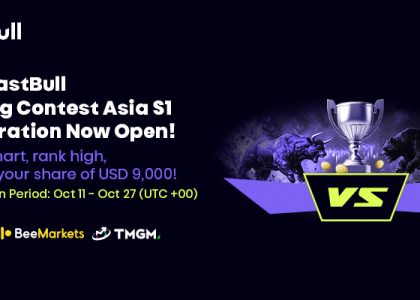
What prompted the CME to begin investing in currency derivatives? Many derivative markets began to explode in the 1970s, so it was a trend they picked up on, led primarily by:
a) When the gold standard was abandoned in 1973, fixed exchange rates vanished.
b) In the 1970s, inflation and interest rates increased and became more erratic.
c) In the two oil shocks of the 1970s, oil prices doubled and tripled (1974-75 and 1979-80).
The derivative markets for Futures contracts exploded as a result of all of this volatility.
The “spot” market refers to the cash market, which refers to the current value (exchange rate) of the currency pair. The “Futures” market indicates the expectation of where the same currency pair will be trading on a future date. If you're trading the EUR/USD in September 2021, for example, the price indicates the current perceived value of the future (September 2021) exchange rate (as we are currently in May 2021). The more forward month contracts you buy, the less liquid they become and the higher the premium you pay. The closing month is usually the same as the spot value given on typical Forex broker platforms.

Spot Forex
– No Central Exchange (Over the Counter Market): This implies that the market you're dealing is one that your broker creates for you. In the past, this has resulted in concerns with manipulation, but today's FX brokers have grown quite competitive in terms of pricing engines and execution rules. For Forex brokers, reputational risk is extremely important, thus their methods are often less “shady” than in the past.
– Issues with regulation: The spot Forex market is becoming increasingly regulated. While the market is not directly regulated, the best FX brokers are all licensed by key regulatory agencies throughout the world (NFA, SEC, CFTC, FCA, CONSOB, etc.) and so the customer is partially safeguarded. Additionally, customer monies are frequently placed in separate accounts, ensuring that your funds are safe in the event that your broker goes bankrupt.
– The Broker May Act as Principal: The majority of Forex brokers do not charge commissions. Instead, they are compensated based on the “spread.” However, they will frequently serve as principle and take the opposing side of your deal. As you are effectively trading against one other, your aims and their goals may not be in harmony. This does not imply that Forex brokers are trading against you or attempting to catch you off guard. Simply put, your losses become their gains, and vice versa. Brokers are interested in serving as principle since most ambitious traders lose money.
– Counterparty Risk: You must ensure that you are aware of where your funds are stored. Are they stored in a segregated account at a big bank or in an account to which the broker has access? To keep client money safe, respectable brokers authorized by the FCA, NFA, CONSOB, and others must follow best practices. However, counterparty risk exists, and it is always a smart idea to only deposit a portion of your risk capital with your broker.
– No Commissions: The majority of Forex brokers do not levy commissions. Instead, they add a markup to their interbank counterparties' best bid and best offer.
– High Leverage: If you are not based in one of the G7 countries, 100:1 leverage is not unusual in spot Forex. This means you may start trading with as little as $100 in your account. Trading using a Forex broker is therefore less expensive. While it's nice to be able to trade with such little margin (making FX trading extremely “cheap”), bear in mind that leverage may also work against you.
Futures
– Single Central Exchange (CME or another large exchange): Forex futures are traded on the Chicago Mercantile Exchange (CME). The CME is one of the world's largest and most well-capitalized exchanges. CME Forex futures are used by some of the world's major institutions to hedge currency risk.
– Transparent Volume: Because there is a central exchange, we can readily monitor trade volume and open interest, and it is available to everyone.
– Well-regulated (SEC, NFA): The CME is subject to two levels of regulation. Because they are a futures exchange, they are regulated by the NFA and the SEC. They are also a publicly traded corporation, which means they are subject to additional regulations as a result of their structure.
– Trades Matched on Globex: Futures are traded in the trading pit as well as on the Globex system, much as other Futures markets. The Globex system, similar to the NASDAQ for equities, is an electronic order matching system. On the other side of your deal, there is no broker. Instead of a broker, when you purchase, your order is matched with a seller just like you. As a result, there are fewer conflicts of interest.
The answer to the question of spot Forex versus Futures is straightforward. Spot Forex is more accessible, and it's simple to trade because to the minimal deposit requirement. Finding a reliable Forex broker that will keep his assets secure and answer the phone in the case of a black swan, on the other hand, involves a lot more due diligence on the side of the trader. There isn't much due diligence to be done with futures. However, the trading capital required to trade Futures is more than that required to trade Spot. You should also find out what fees your Futures broker will charge in addition to the fees charged by the regulated exchanges. As a result, trading futures might be more expensive: you're paying for uniformity and no conflicts of interest.




